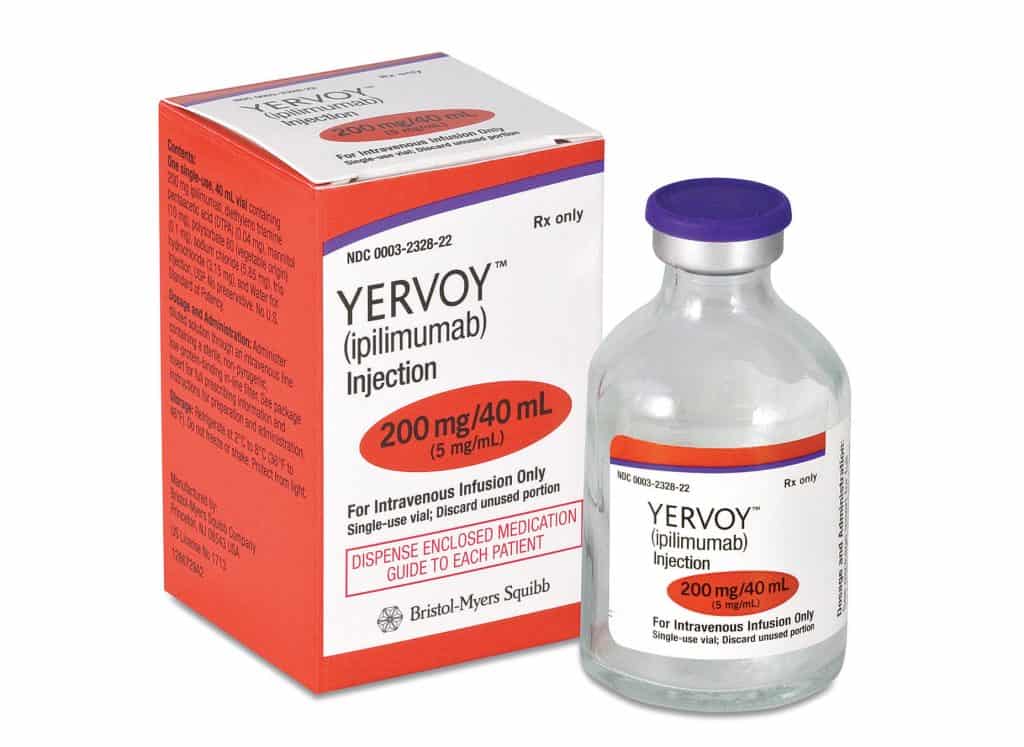
NICE restricts Yervoy use
pharmafile | February 25, 2014 | News story | Sales and Marketing | BMS, Cancer, NHS, NICE, Yervoy, melanoma
Bristol-Myers Squibb has been dealt a blow by NICE after the UK cost watchdog recommended that the use of skin cancer drug Yervoy should be restricted.
In preliminary draft guidance it says Yervoy (ipilimumab) should only be used on the NHS for previously-untreated patients who are in clinical trials “to ensure that evidence for its clinical effectiveness continues to be collected”.
NICE already recommends Yervoy as a second-line treatment for people with unresectable or metastatic malignant melanoma – but there are limited first-line options.
Both parties expressed their regret, with NICE chief executive Sir Andrew Dillon saying it was “disappointing that the evidence put forward by the company did not conclusively demonstrate” Yervoy’s ability to extend life compared to standard care in the NHS.
“We understand that clinical trials are ongoing that could provide an answer to this important question, and are keen to see the recruitment and continued follow-up of patients in these trials encouraged,” he added.
Meanwhile BMS believes that the guidance “effectively denies access to ipilimumab for NHS patients with previously-untreated advanced melanoma who are not in a clinical trial”.
The company is convinced it has already proved enough and Amadou Diarra, general manager of BMS UK & Ireland, said: “We…hope that the significant unmet need and clinical evidence backing this treatment will result in a review of this decision.”
In a statement, BMS added: “This decision could leave [patients] without the option to be treated with this innovative immuno-oncology therapy which has the potential to offer long-term survival.”
The watchdog’s main problem with BMS’ evidence is that the clinical trial CA184 024 assessed Yervoy 10 mg/kg plus chemotherapy agent dacarbazine, and not its licensed dose (four doses of Yervoy 3 mg/kg alone over 12 weeks).
NICE said this meant BMS had assumed that the 3 mg/kg and 10 mg/kg doses had the same level of effectiveness and that Yervoy plus dacarbazine was equivalent to Yervoy alone – something for which there was ‘no robust evidence’.
In order to calculate ‘reliable’ cost-effectiveness estimates for Yervoy 3 mg/kg on its own in the first-line setting, compared with dacarbazine and Roche’s Zelboraf (vemurafenib), “more precise and accurate estimates of clinical effectiveness were needed”.
BMS says Yervoy 3mg/kg monotherapy “has the potential to improve the overall survival of patients, irrespective of whether they have received prior therapy or not for their metastatic melanoma”.
Patient groups are not impressed with NICE’s stance. Gill Nuttall of Melanoma UK reiterated that treatment options are already limited and added: “Unless reversed, this decision by NICE will sadly continue this trend and will leave some patients without a medicine that could potentially help extend their lives.”
In 2011 melanoma killed around 2,200 people in the UK.
Adam Hill
Related Content

NICE recommends migraine treatment for NHS use
The National Institute for Health and Care Excellence (NICE) has shared draft guidance recommending AbbVie’s …

Geneos Therapeutics shares data from phase 1/2 trial for cancer vaccine
Geneos Therapeutics has announced that it has published positive safety, immunogenicity and efficacy data from …

Curve Therapeutics’ CSO publishes research on HIF inhibition for cancer treatment
Curve Therapeutics has announced that its chief scientific officer, Professor Ali Tavassoli has published research …








